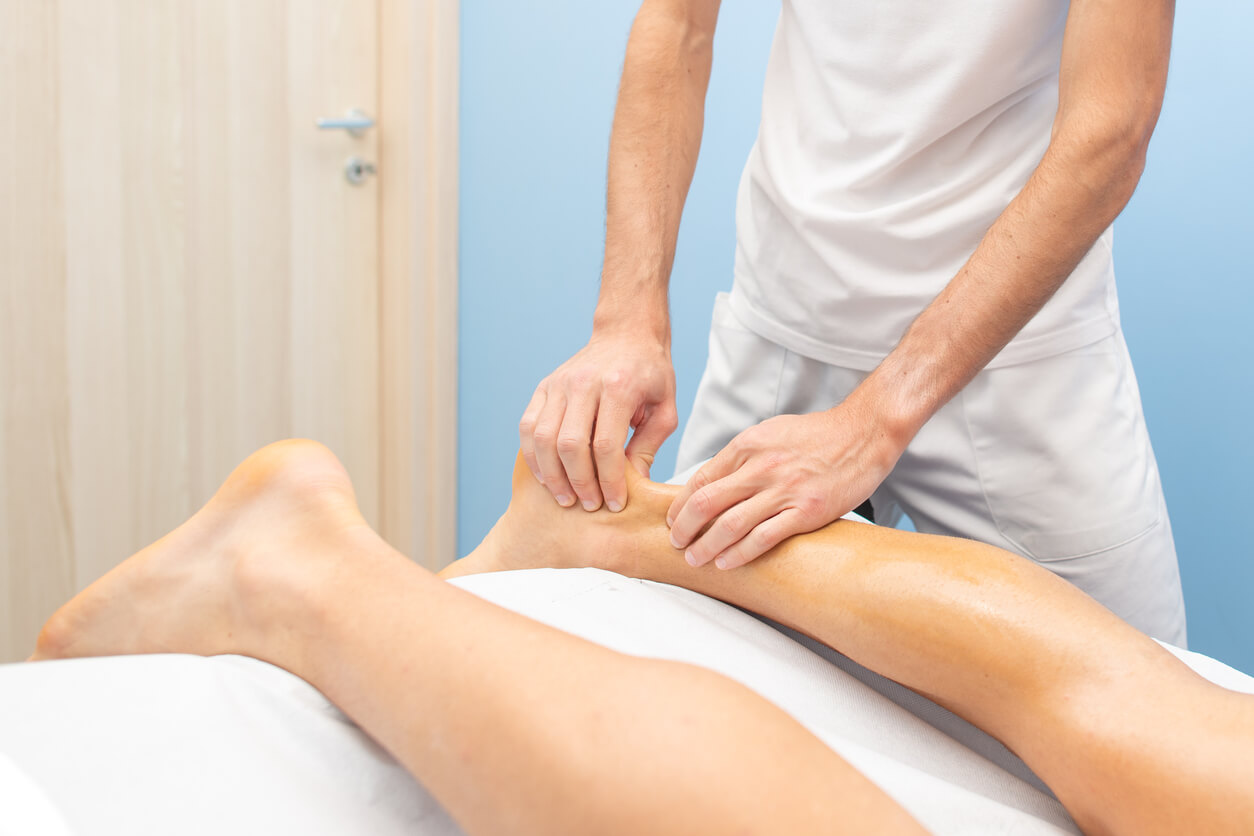Are some people more prone to suffering an Achilles tendon rupture than others?
Named after Achilles, one of the mythical heroes of the Trojan War who was considered the greatest of all Greek warriors, the Achilles tendon is well known by most as the strongest tendon in the body, but it is also the longest. It connects the gastrocnemius and soleus muscles, which make up the calf muscles in the lower leg, with the heel bone (calcaneus).
Despite the strength of the Achilles tendon, its length coupled with the fact that we place such demand on it makes it vulnerable to wear and tear, as well as highly susceptible to injury. This is easy to understand when we think about the fact that this tendon is called upon pretty much every time we take a step, run, jump, climb stairs and simply stand up.
Athletes, professional and the weekend warrior type, are frequently affected by Achilles tendon injuries, with it being estimated that there are roughly a million per year. The more severe form of trauma to the Achilles tendon is the Achilles tendon rupture which can be found in anyone and at any age but most often affects men in their 30s and 40s, especially when they are participating in sports activities like basketball, soccer, and tennis.
Achilles Tendon Rupture Risk Factors
We know that the often extreme movements demanded of athletes can simply put too much stress on the Achilles tendon and cause it to tear or rupture. There is a wide range of factors, however, that tend to make that more likely to happen, even when engaged in a milder activity. Some of those believed to be contributing causes include:
- Age – highest percentage fall between 30 and 40
- Gender – Achilles tendon ruptures in men are five times more frequent than in women
- Weight – excess weight of obesity creates more pressure on the body in general and especially on areas like the Achilles tendon
- Activity level – professional athletes are at risk but those involved at the recreational level often fail to adequately warm-up or gradually build performance time and intensity which can lead to all sorts of injuries, including ruptures of the Achilles tendon
- Medications – certain antibiotics, such as fluoroquinolones like ciprofloxacin (Cipro) or levofloxacin (Levaquin) are considered risk factors in Achilles tendon ruptures
- Steroids – using steroid injections as a treatment for ankle pain and inflammation can actually weaken the tendons in the ankle and increase the possibility of injury
Certain systemic factors have also been found to be associated with injuries to the Achilles tendon. These diseases and conditions include:
- Infections
- Chronic renal failure
- Diabetes
- Thyroid disorders
- Gout
- Collagen deficiency
- Parathyroid disorders
- Lupus
- Certain types of arthritis, such as rheumatoid arthritis, ankylosing spondylitis, or psoriatic arthritis
Structural issues can also increase the risk of Achilles tendon injuries. Some of these include:
- Cavus foot, which refers to a high arch
- Weak calf muscles
- Impaired ankle dorsiflexion, which is flexing the foot back toward the shin
- Tibia vara, commonly known as bowlegs
- Hyper-pronation, which is rolling inward with the foot
If you have questions about your Achilles tendon or about any other foot or ankle concerns, Dr. Christopher Hubbard is a board-certified Orthopedic Surgeon with Ortho-Care Wayne in Passaic County New Jersey and is the former Chief of the Foot and Ankle Service at Mount Sinai Beth Israel in NYC.
To schedule an appointment, or if you just have questions, please use our convenient online contact form by clicking here.
